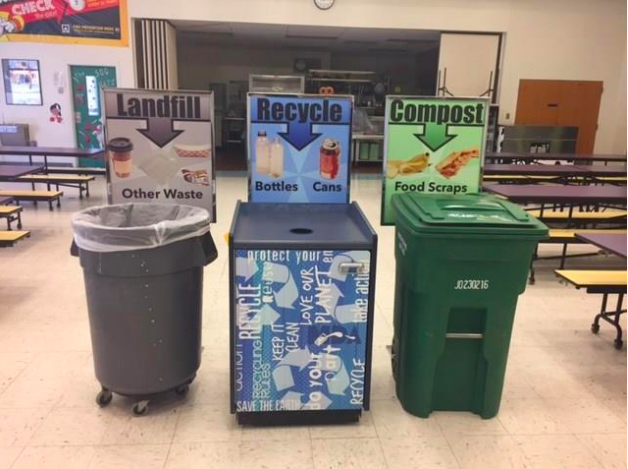
While Hopewell Valley has long been ecologically motivated, the wider stage has oft been fraught with a frustrating indifference. Lately, attention grabbing world-wide headlines about environmental challenges have instilled a new sense of urgency that encourage local conservation efforts.
I love the fact that Hopewell Valley is home to so many environmentally friendly organizations and as a community tries to stay ahead of the curve in our earth friendly initiatives. It is interesting to review where we stand on some pressing issues.
Let’s begin with a baseline understanding. Conservation can take many forms. A quick definition: con·ser·va·tion – prevention of wasteful use of a resource.
Single-Use Plastic is particularly harmful since the growth of plastic production has far outstripped the ability of waste management to keep up. According to National Geographic ocean plastic is estimated to kill millions of marine animals every year.
Worldwide – According to Reuters, the European Parliament voted to ban single-use plastics including plates, balloon sticks, food and beverage containers made of expanded polystyrene and all products made of oxo-degradable plastic. These are the most commonly found items on EU beaches.
Nationally – While there are no federal efforts to reduce single-plastics, California and Hawaii both have legislation in place to ban plastic bags and according to Slate.com New York has reached an agreement to do so.
Locally – Our own Hopewell Borough has enacted a plastic bag ban. In August 2018 it was introduced with little fanfare and just FoHVOS speaking in favor of the ban. Council members lamented the absence of an educational component and once education was added the Boro passed the ordinance on November 1st with added support from the Hopewell Elementary Green Team and representatives from the Watershed.
At Our Schools – According to Tom Smith, Superintendent of Schools, “Last year we removed plastic straws and stirrers in our cafeterias. This year our work has expanded to raise awareness of the overuse of plastics in our environment. Student have been encouraged to use reusable water bottles and fill them at one of the over 50 filter bottle filling stations in our schools. This has resulted in an overall decrease in the sales of bottled water in our cafeterias and less plastic in our environment.”
Recycling is a final opportunity to minimize waste. Better choices include simply consuming less and reducing use or finding a way to repurpose or re-use an item.
Worldwide – Last year China stopped importing most recycling materials and according to a March 2019 Press release the Government of India announced that will ban import of plastic and other recycling waste.
Nationally – The international ban on recycling has left US states in turmoil as they scramble to find alternatives. While it is causing short term headaches, I am hopeful that the crisis may spur innovation.
Locally – The Hopewell Township Environmental Commission held a lengthy discussion about future recycling efforts. Much of it centered on issues surrounding contamination in recycle streams and the idiosyncrasies of various processing centers. They agreed to embark on education campaigns to ensure recycling is more effective.
At Our Schools – There have always been robust recycling programs. The schools engaged in textile drives and recycling bins before the idea went mainstream. Now the founding chairs spend their time encouraging people to avoid buying “disposable” clothing rather than recycling. Last year the schools really upped their game for encouraging recycling and reduced food waste. Their studies showed that when recycling bins were available near landfill bins, people were more likely to recycle. Food and garbage audits by students are also influencing choices.
There are many local partnerships surrounding Hopewell Valley’s efforts to dispose of plastic, trash and recycling. Among the most popular is the semi-annual Clean Communities program administered by FoHVOS for Hopewell Township. Groups and individuals pick up trash and recycling in the local community in exchange for donations to their favorite non-profit organizations.
Please remember REDUCE – REUSE – RECYCLE… in that order. For more tips about local recycling visit hopewellvalleygreenteam.org.
Future articles for this publication may include Community Conservation efforts in place to improve water and land use.
The need to care for our earth is undeniable and a December 2018 Monmouth poll shows a majority of people from both political parties generally support greening concepts. While it is somewhat scary to consider worst case scenarios, it is an exciting time as local coalitions form to take steps to improve the earth we leave for our children.
Friends of Hopewell Valley Open Space is an accredited non-profit land trust that is dedicated to conserving the Valley’s character by collaborating with the community to preserve land, protect natural resources, and inspire a new generation of conservation.
To learn more about information about Community Conservation, Clean Communities or FOHVOS, reach Lisa at lwolff@fohvos.org or visit their website at fohvos.org.
An excerpt of this article appears in May’s Hopewell Valley Neighbors magazine.
Click HERE to DONATE to FOHVOS!

